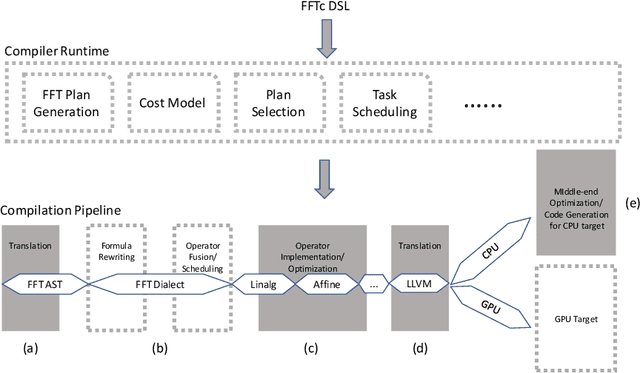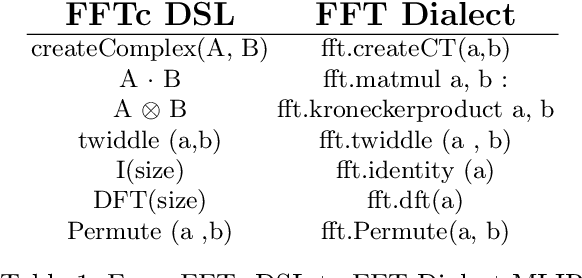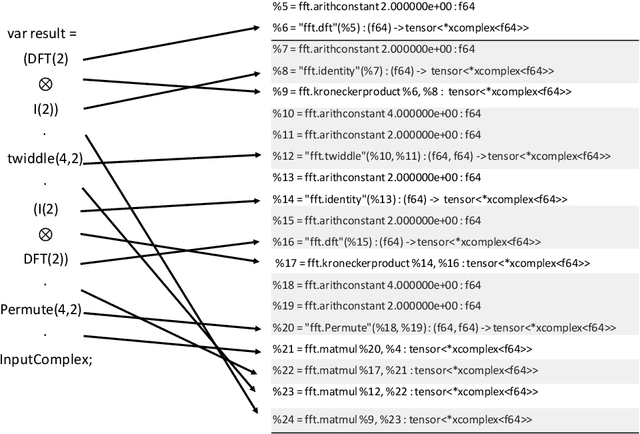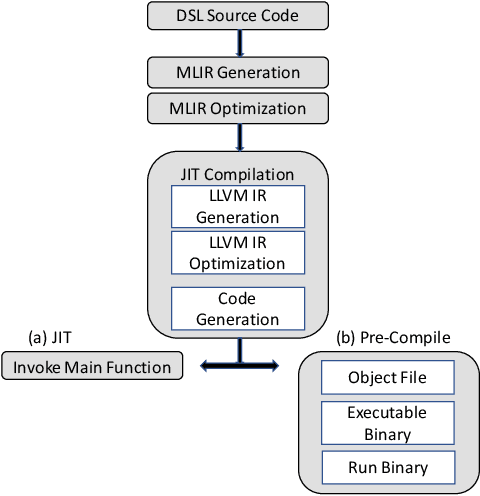Måns I. Andersson
Optimizing FDTD Solvers for Electromagnetics: A Compiler-Guided Approach with High-Level Tensor Abstractions
Apr 12, 2025Abstract:The Finite Difference Time Domain (FDTD) method is a widely used numerical technique for solving Maxwell's equations, particularly in computational electromagnetics and photonics. It enables accurate modeling of wave propagation in complex media and structures but comes with significant computational challenges. Traditional FDTD implementations rely on handwritten, platform-specific code that optimizes certain kernels while underperforming in others. The lack of portability increases development overhead and creates performance bottlenecks, limiting scalability across modern hardware architectures. To address these challenges, we introduce an end-to-end domain-specific compiler based on the MLIR/LLVM infrastructure for FDTD simulations. Our approach generates efficient and portable code optimized for diverse hardware platforms.We implement the three-dimensional FDTD kernel as operations on a 3D tensor abstraction with explicit computational semantics. High-level optimizations such as loop tiling, fusion, and vectorization are automatically applied by the compiler. We evaluate our customized code generation pipeline on Intel, AMD, and ARM platforms, achieving up to $10\times$ speedup over baseline Python implementation using NumPy.
FFTc: An MLIR Dialect for Developing HPC Fast Fourier Transform Libraries
Jul 14, 2022



Abstract:Discrete Fourier Transform (DFT) libraries are one of the most critical software components for scientific computing. Inspired by FFTW, a widely used library for DFT HPC calculations, we apply compiler technologies for the development of HPC Fourier transform libraries. In this work, we introduce FFTc, a domain-specific language, based on Multi-Level Intermediate Representation (MLIR), for expressing Fourier Transform algorithms. We present the initial design, implementation, and preliminary results of FFTc.
 Add to Chrome
Add to Chrome Add to Firefox
Add to Firefox Add to Edge
Add to Edge